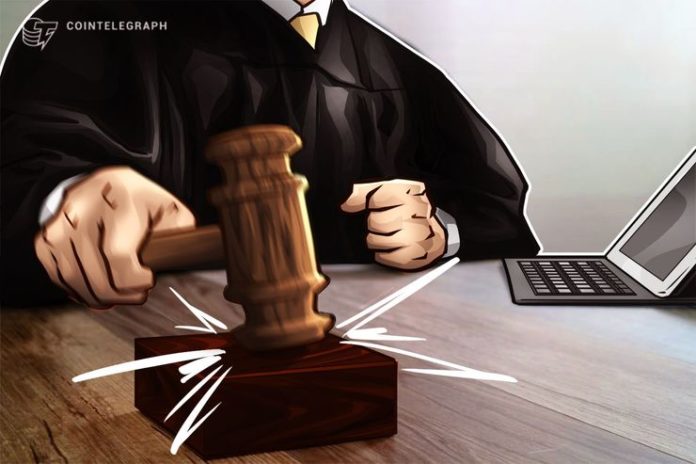
The husband and wife duo behind blockchain project Tezos have faced their latest setback in an ongoing securities class action against their $232 million Initial Coin Offering (ICO), according to a docket report published August 7.
U.S. District Judge Richard Seeborg of the Northern District of California yesterday refused to dismiss plaintiff Arman Anvari’s suit against the defendants, which consolidates various prior class action suits filed by other Tezos contributors against Arthur and Kathleen Brietman, their firm Dynamic Ledger Solutions (DLS), and the Tezos Foundation.
The controversial case surrounds what Tezos’ creators claim was an online fundraiser, although the docket report chooses to adopt the term ICO “in deference to the language of the complaint,” while noting that the Breitmans were “careful to avoid characterizing the plan” as such.
The defendants are thus accused of violating U.S. Securities and Exchange Commission (SEC) regulations through the sale of unregistered securities in the U.S.
Judge Richard Seeborg dismissed the Breitmans’ motion against Anvari’s complaint, in which the couple had argued that the ICO did not fall under the U.S. SEC’s jurisdiction because it was administered by the Swiss-based Tezos Foundation.
The judge considered that the involvement of DLS “in establishing and aiding the Tezos Foundation rendered the two entities deeply intertwined, if not functionally interchangeable, throughout the ICO process”:
“Try as the Foundation might to argue that all critical aspects of the sale occurred outside of the United States, the realities of the transaction (at least as alleged by Anvari) belie this conclusion.”
Anvari, a former Perkins Coie associate in Chicago, invested 250 ether, a cryptocurrency part of the Ethereum (ETH) system, in Tezos’ ICO, according to the docket report.
The judge notes that Anvari’s transaction was hosted on an Arizona-based server and run by Arthur Breitman in California, adding that Anvari “presumably” learned about the ICO from “marketing that almost exclusively targeted [US] residents,” and his ether contribution “was validated by a network of global “nodes” clustered more densely in the [US] than in any other country.”
Two further defendants are named in the court filing. The first is venture capitalist Tim Draper, who publicly backed the project and allegedly purchased a $500,000, ten percent stake in DLS in May 2017, before separately joining a $1 million capital pool during the July ICO. The second is Bitcoin Suisse AG, a firm that provided intermediary services to certain of Tezos’ ICO contributors.
Draper has now been dismissed with leave to amend, after Seeborg found that Anvari failed to show he relied on anything Draper had said when he chose to invest in Tezos. Bitcoin Suisse has been wholly dismissed as a defendant, as it does “not appear to be a key player.”
On June 30, the Tezos Foundation finally launched its beta network, calling the move an “inflection point” for the project.
At press time, Tezos (XTZ) is trading at $1.52, down almost 16 percent on the day.

Cointelegraph.com is author of this content, TheBitcoinNews.com is is not responsible for the content of external sites.
Our Social Networks: Facebook Instagram Pinterest Reddit Telegram Twitter Youtube










